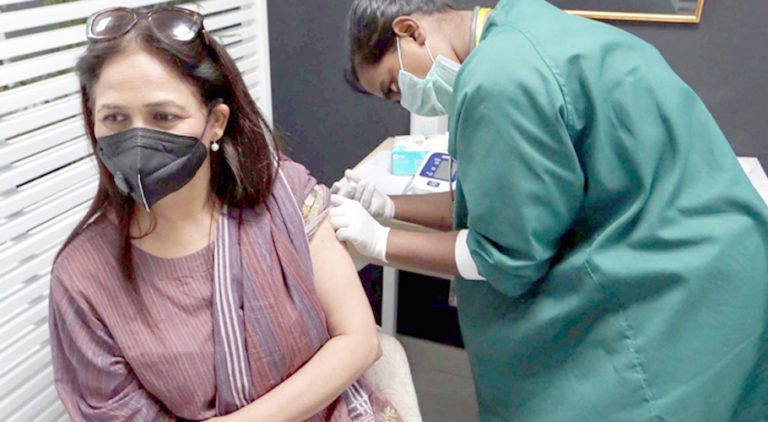The number of coronavirus cases are rising once again across the country. The spread is due to the presence of the Delta variant, a strain of the coronavirus first detected in India.
There are at least 35 confirmed cases of the Delta variant in Karachi, where the positivity case has risen to 14%. Federal Minister Asad Umar, who heads the NCOC, said that the Delta virus is also present and rapidly present across the country.
What is the Delta variant?
The Delta variant, also known as B.1.617.2, can spread more easily. The strain has mutations on the spike protein that make it easier for it to infect human cells. That means people may be more contagious if they contract the virus and more easily spread it to others.
In fact, researchers have said that the Delta variant is about 50% more contagious than the Alpha variant, which was first identified in the UK. Alpha, also known as B.1.1.7, was already 50% more contagious than the original coronavirus first identified in China in 2019.
Public health experts estimate that the average person who gets infected with Delta spreads it to three or four other people, as compared with one or two other people through the original coronavirus strain. The Delta variant may also be able to escape protection from vaccines and some COVID-19 treatments, though studies are still ongoing.
Where did the Delta variant originate?
The Delta Plus variant, also known as B.1.617.2.1 or AY.1, is considered a “subvariant” of the Delta version. It has a mutation that allows the virus to better attack lung cells and potentially escape vaccines.
First identified in India, Delta Plus has now been found in the US, UK and nearly a dozen other countries. India has labeled it a variant of concern. The Delta variant was first identified in India in December 2020 and led to major outbreaks in the country. It then spread rapidly and is now reported in 104 countries
As of early July, Delta has become the dominant form of the coronavirus in the US, UK, Germany, and other countries. In the UK, the Delta variant now makes up more than 97% of new COVID-19 cases and is also the dominant strain in the United States.
What are the symptoms of the Delta variant?
The symptoms are similar to those seen with the original coronavirus strain and other variants, including a persistent cough, headache, fever, and sore throat.
At the same time, COVID-19 patients have reported that some symptoms are slightly different for Delta. Cough and loss of smell seem to be less common. Headache, sore throat, runny nose, and fever seem to be more common.
How effective is Delta variant against vaccines?
People who haven’t been fully vaccinated against COVID-19 are most at risk. Children and younger adults who haven’t been vaccinated may be susceptible as well. Scientists are looking at how the Delta variant can cause breakthrough cases or infections among people who are fully vaccinated.
In a preliminary analysis, two doses of the Pfizer or Moderna vaccine appeared to be about 88% effective against disease and 96% effective against hospitalization with the Delta variant.
The AstraZeneca vaccine was about 60% effective against disease and 93% effective against hospitalization. Johnson & Johnson has also reported efficacy from its one-shot vaccine against the Delta variant, which researchers estimate to be similar to the AstraZeneca results.
Vaccine makers are testing booster shots to find out if they can better protect against the Delta variant and other variants that emerge in coming months.


































